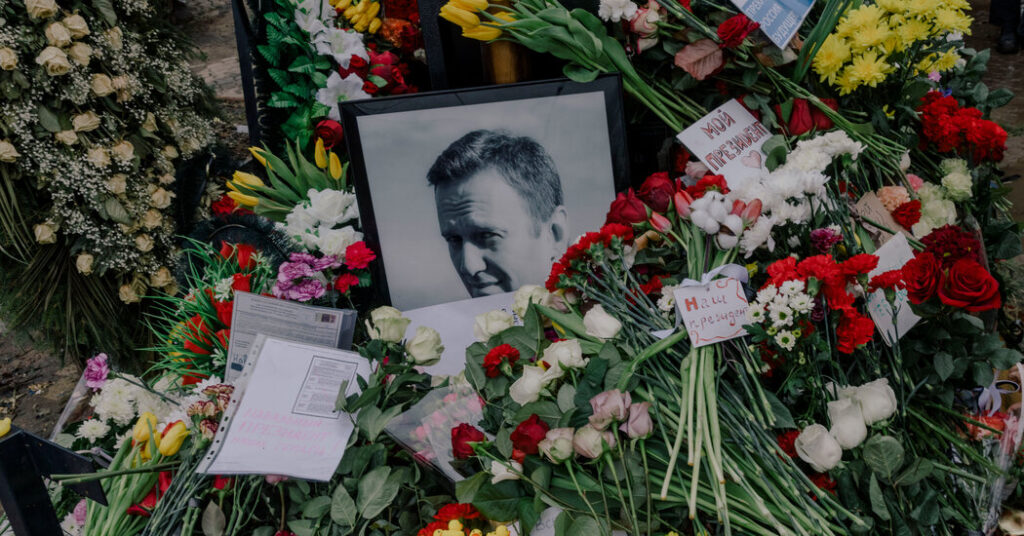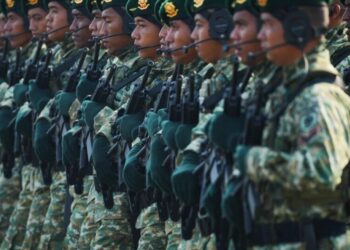Russia’s Supreme Court on Thursday designated the anti-corruption organization founded by Aleksei A. Navalny as a terrorist group, ratcheting up a legal onslaught against the opposition leader’s movement that has continued even after his death last year in an Arctic penal colony.
Mr. Navalny’s organization, the Anti-Corruption Fund, had already been labeled “extremist” by another Russian court in 2021, a decision that liquidated the group in Russia and sent most of its members into exile to avoid long prison sentences. Under the new terrorism designation, anyone who cooperates with the organization could be imprisoned for life.
Allies of Mr. Navalny described Thursday’s court ruling as yet another attempt to hamstring their work. The 2021 decision had already criminalized fund-raising from ordinary Russians who had for years kept the Anti-Corruption Fund afloat.
“It’s going to be even harder for the A.C.F. to work, harder to access information in Russia, harder to raise funds,” Leonid Volkov, who was Mr. Navalny’s chief of staff and now lives in exile, said on social media.
In a statement, Russia’s highest court said that the Anti-Corruption Fund’s “goals and actions aim at promoting, justifying and supporting terrorism.” The judge in the case, Oleg Nefedov, had previously outlawed the “international L.G.B.T. movement” as extremist.
After Mr. Navalny’s death in February 2024 at age 47, law enforcement officers across Russia continued to track down Russians who had wired small amounts of money to support the opposition leader’s work. Officers even targeted people who had sent funds before the extremist designation.
As the Kremlin has cracked down on all forms of dissent, more than 100 Russians have faced charges of funding extremist groups, according to a tally by the media outlet Mediazona last month. While most have been given steep fines, some have received prison sentences.
Now that the Anti-Corruption Fund has been designated as a terrorist organization, Russians who have donated to the group at any time could face up to life in prison.
Mr. Navalny’s allies had been officially branded as foreign agents and as “undesirable” before his group was labeled extremist. The Kremlin has been “testing out” such labels on the Navalny movement before applying them to other critics of President Vladimir V. Putin, the organization said in a statement.
“We are not terrorists,” the group said. It accused the Russian president and his “accomplices” of crimes and abuses in Ukraine and at home, including “starting a war, killing civilians and political opponents, and jailing people.”
The post Russia Labels Navalny’s Anti-Corruption Group as Terrorist Organization appeared first on New York Times.




